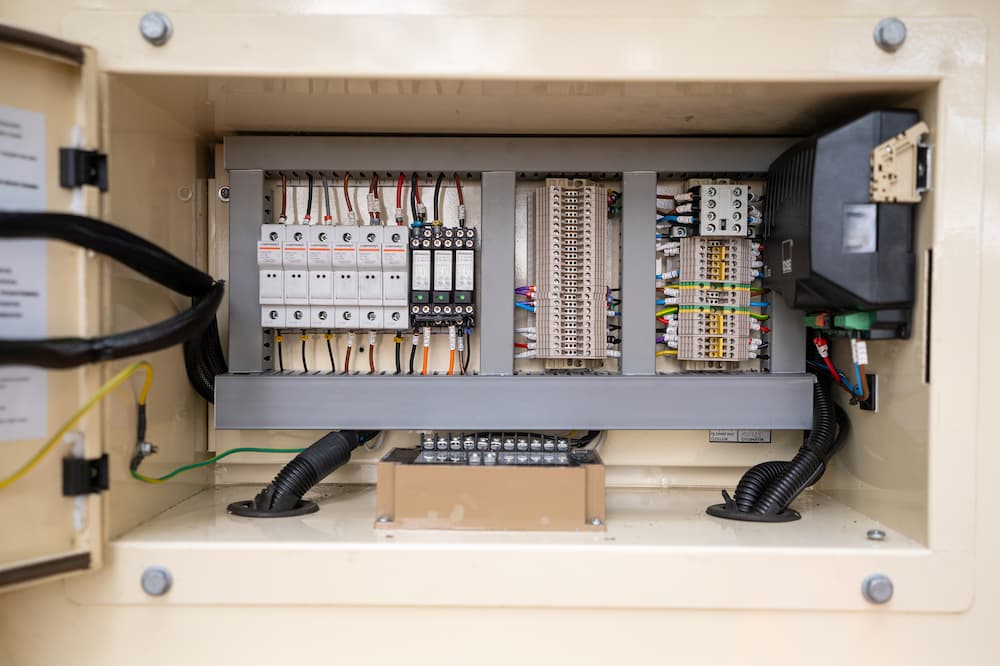Generators are starting to become a ‘must-have’ in homes and commercial spaces. Generators are essential when it comes to providing power in emergencies, such as sudden power outages in extreme weather conditions.
Whatever the reason you’re using your generator, you will need to store it in a safe place that’s easily accessible in times of panic.
We all want to get the full money’s worth out of our investments, and generators usually cost a pretty penny. Whatever model generator you have, it’s crucial that you are following safety protocols and storing your generator in the correct place.
Storing your generator correctly will maintain its durability and functionality, in the long run, meaning it will work just as well as when you first bought it regardless of how long you’ve had it.
If you’ve got a generator and you know that you won’t be using it for a while, then you will need to prepare it for storage. We’ve got our generator expert in-house team to write this article in order for you to get a better understanding of how to prepare and store your generator. Before you store your generator, you’ll need to follow some steps.
Check the Oil
If you’ve recently purchased a generator, it’s unlikely that you’ll find any leaks – along with this, you could also find that your generator uses a little amount of oil. Regardless of how new your model is, you should always check your oil levels to make sure that all parts of your generator are running properly.
Empty the Gas
In a perfect world, you’ll run out of gas before you need to put your generator into storage. You should never attempt to store your generator with a tank full of flammable gas in it. As you probably know, petrol and diesel are flammable liquids, meaning there are many dangers involved when using the substances.
Flammable liquids being kept in your generator could cause a fire in your home or commercial space. When you leave untreated fuel left in your generator, it can go bad over time, meaning that when it comes to restarting the power on your generator, it might not start when you need it most.
Leftover fuel can do various damage to certain parts of your generator when it’s in storage. At Pleavin Power, we encourage our customers to never leave fuel in their generators.
If it isn’t an option to run your tank to empty, then you will want to add a fuel stabilizer to have a full tank of gas in your generator. To use it, run the engine of the generator to fully distribute the stabiliser throughout the system. The reason why a fuel stabilizer is so important is that it will help prevent the gas from absorbing moisture and going bad in the tank.
Take a Look for Damages
Before you go to store your generator away, it’s crucial that you do a deep inspection of your generator. Check for any parts that could be potentially damaged or have now shown signs of wear and tear so that you can replace them or get them fixed. If you do not attempt to replace or fix them while in storage then they could potentially get worse over time.
Regular Maintenance
Generators keep at their best performance when they have regular maintenance checkups. To save yourself time and hassle, you can reach out to generator companies like us at Pleavin Power who do regular maintenance to keep your generator at its best performance.
Clean Your Generator
The last thing you should do before storing your generator gives it clean and wipe it down to get rid of any dirt or debris. If you leave dirt and debris on your generator then it can eat away at seals and switches which can damage it further. This is a simple tip as you can wipe down the generator with just a clean rag.
Where to Store Your Generator
Once your generator is ready to be prepared for storage, then the next step will be deciding on where you’re going to store your generator safely. You need to make sure that your power generator is covered and protected at all times during the storage stage. Due to most generators being used in emergency situations, they must be easily accessible so that you can get them with no problems.
Garage
One of the most popular choices to store power generators is in a garage – garages offer optimal protection to your generator and keep it away from natural outside elements that could affect its performance. Garages are temperature controlled and easily accessible, making them the perfect place to store your generator.
We highly recommend that you don’t keep your generator inside your household, as it can pose some risks – especially if your generator is holding gas. Garages are the perfect place for generators, and if you happen to have one, be sure to store your generator in there.
Outdoor Sheds
Many people prefer keeping their generators away from their homes, this is where garden sheds come in. so an ideal location is in their outdoor shed. The outdoor shed does come with a few negatives, such as if you live in a place where the winters are very cold, it can damage the generator or decrease its overall performance.
Generator Enclosures
A brilliant option to store your generator is in a generator enclosure, especially for those who are looking for something midway between your garage and outdoor shed. Generator enclosures are a perfect solution to storage, as it allows you to keep your generator away from any potential moisture which can be harmful to your generator.
Generator enclosures also keep your product away from dirt and debris that a garage or shed has.















